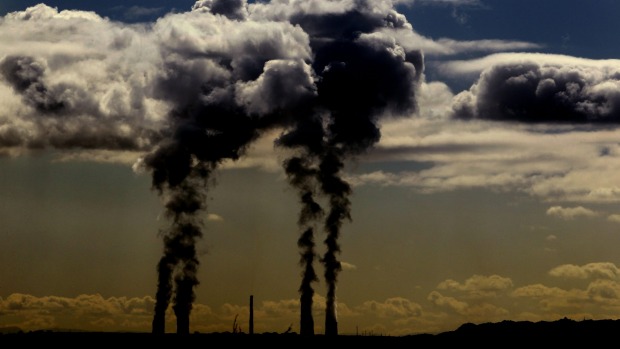 |
| Reviews and Templates for Expression We |
Clean, green NZ falls behind Australia on climate change

Emission-slashing pledges by countries including the United States have experts questioning if New Zealand's recently-announced climate change target is as fair and ambitious as it was described to be.
Even the carbon tax-scrapping Australians will do more than New Zealand to address climate change.
Australian Prime Minister Tony Abbott, who made an election promise to drop the controversial tax, pledged on Wednesday to cut Australia's greenhouse gases by 20 per cent by 2030, compared to 1990 levels. That contrasts with the 11 per cent below the 1990 target, set by the New Zealand Government last month.
Newly released figures on nine countries and regions show New Zealand's greenhouse gas pledges are the second-weakest. Only Canada will take a less ambitious goal to the United Nations December climate change conference in Paris, according to a table by independent think-tank The Climate Institute.
Victoria University climate change scientist James Renwick said it was disappointing to see New Zealand could not even match the commitment of Australia, let alone the European Union's goal to cut 40 per cent from its emissions by 2030.
"Australia are not actually doing particularly well either, but New Zealand is doing worse ... It is not a good look. New Zealand already has a rather poor reputation in these meetings and negotiations, in my understanding."
The comparisons contradicted the Government's description of its target as "fair and ambitious", Renwick said.
"It's unimpressive and it is not fair, because it is not fair on future generations. As this becomes more and more important, this is going to hurt us, economically."
Of the nine countries, New Zealand has the slowest greenhouse gas reductions planned for the decade beginning in 2020 decade, according to the table.
Climate Change Minister Tim Groser said the country's goal "compared similarly" to those of Australia, the United States and Canada. Many of those countries could meet their commitments by investing in sustainable electricity generation, but New Zealand already had 80 per cent of electricity made from renewable sources.
"New Zealand's remaining emissions are much more costly to reduce than those of other key developed countries who can mitigate more cheaply by moving to renewable electricity."
Labour climate change spokeswoman Megan Woods said a fairer pledge would be a carbon dioxide cut of 40 per cent by 2030, with methane emissions also scrutinised. "We're not doing our bit in restricting temperature rise to 2 degrees. Eleven per cent is not enough."
Paul Young, co-founder of Generation Zero, said New Zealand would be seen as no longer deserving of tourism taglines such as "100 Per Cent Pure" as a result of its global warming stance. "It shows, whichever way you cut it, New Zealand is one of the countries dragging the chain."
The Government was also falling behind in announcing concrete policies that would start to reduce greenhouse gas outputs, he said.
"New Zealand's emissions are growing and the Ministry for the Environment tells us we'll be nowhere near our target by 2030 under current policies. It would look even worse for New Zealand if you took that into account.
"Even if we had a plan to meet these weak pledges, we'd be in a much better position."

|
|
|
|
Copyright 2011 Energy and Technical Services Ltd. All Rights Reserved. Energyts.com |